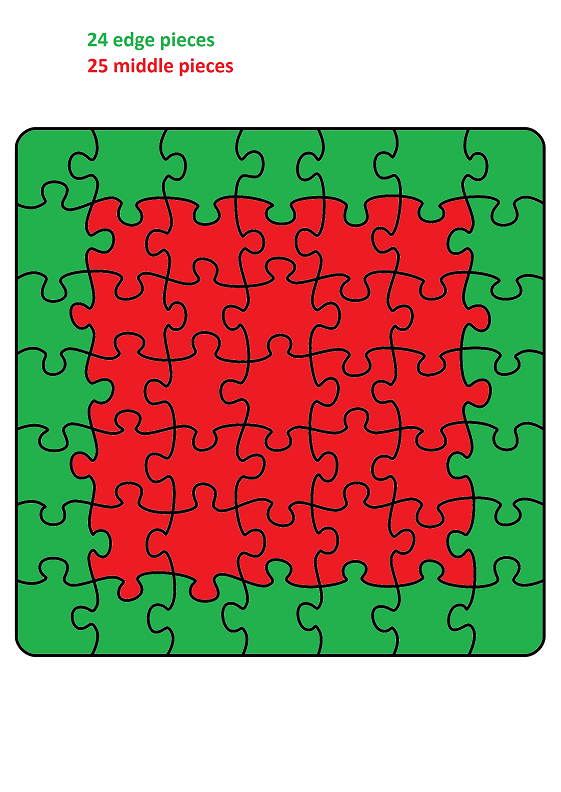My young daughter and I love doing jigsaw puzzles together. The other day, we had a quite difficult one: 7 by 7 pieces!
We started as usual by splitting the pieces into 2 stacks: the edge pieces on one side, the middle pieces on the other side.
Before putting the edges together, we noticed that there were almost the same number of pieces in each stack:

I wondered then... our puzzle collection is huge! We have all the possible sizes, from 1x2 to 100x100 pieces.
Can we find one (or even more?) in our collection containing exactly the same number of edges pieces and middle pieces?
